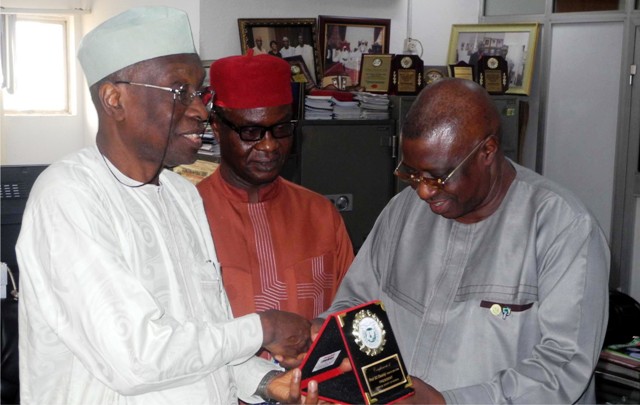Business
Private Firms, Coming Back To Nigeria – Buhari

Elated over Nigeria’s exit from crippling recession, President Muhammadu Buhari has said that foreign private companies were coming back to Nigeria.
The companies, he said, were making massive investments within the existing legal and regulatory frameworks.
Buhari expressed delight over the ‘significant’ growth in the non-oil sector which was creating thousands of jobs across the country.
At a meeting in Abuja with a Qatari business delegation led by the former Emir, Sheikh Hamad Bin Khalifa Al Thani, Buhari named some of the private investments.
They include the $9 billion Dangote Refinery and Petrochemical complex in Lagos and the completed $600 million Lafarge Plant in Calabar.
Others are the proposed rail stock; the proposed $1.3 billion public private partnership with General Electric on Rail Track Development; and the proposed ENI/Agip rehabilitation of Port Harcourt Refinery.”
“As you are aware, Nigeria just exited its worst recession in more than two decades. We have more than doubled our foreign reserves,” he said,
His Senior Special Assistant on Media and Publicity, Mr Garba Shehu, reported Buhari as saying: “We are winning the war against corruption, we are developing our infrastructure, and we are enforcing the rule of law.
“ As a result of this, we are seeing significant growth in the non-oil sector which is creating thousands of jobs across the country.”
He described the Federal Government’s economic agenda as one designed to move Nigeria from over-reliance on crude oil and food importation.
The President told the delegation that in the last two years, the policy has turned the nation into one of the most attractive investment destinations in Africa.
“My administration’s economic agenda has always been to move away from over-reliance on crude oil and food importation. Nigeria is a blessed country, we have fertile land, we have a young and energetic population, and we have a very strong legal and regulatory system that protects capital and investments, both local and foreign, he said.
He cited the current strategic partnership between Moroccan and Nigerian fertiliser companies as part of the success stories.
Business
NCDMB, Jake Riley Empower 250 Youths On Vocational Skills

Business
NUJ Partners RSIRS On New Tax Law Education

Transport
Nigeria Rates 7th For Visa Application To France —–Schengen Visa

-

 Politics5 days ago
Politics5 days agoPFN Rejects Call For INEC Chairman’s Removal Over Genocide Comments
-

 Rivers5 days ago
Rivers5 days agoFasthire, PHCCIMA, CIPM Host CareerFest 2026 In PH
-

 Sports5 days ago
Sports5 days agoEnekwechi wins Orlen Cup in season opener
-

 Politics5 days ago
Politics5 days agoHoodlums Disrupt LP-ADC Defection Event In Lagos
-

 Sports5 days ago
Sports5 days agoSimba open Nwabali talks
-

 Sports5 days ago
Sports5 days agoFalconets, Senegalese Lionesses arrive Ibadan for qualifier
-

 Politics5 days ago
Politics5 days agoRemoval From INEC’s Portal, Abure-Led LP Faction Mulls Legal Action
-

 Niger Delta5 days ago
Niger Delta5 days agoTinubu, Jonathan, Diri Pay Last Respect To Ewhrudjakpo

